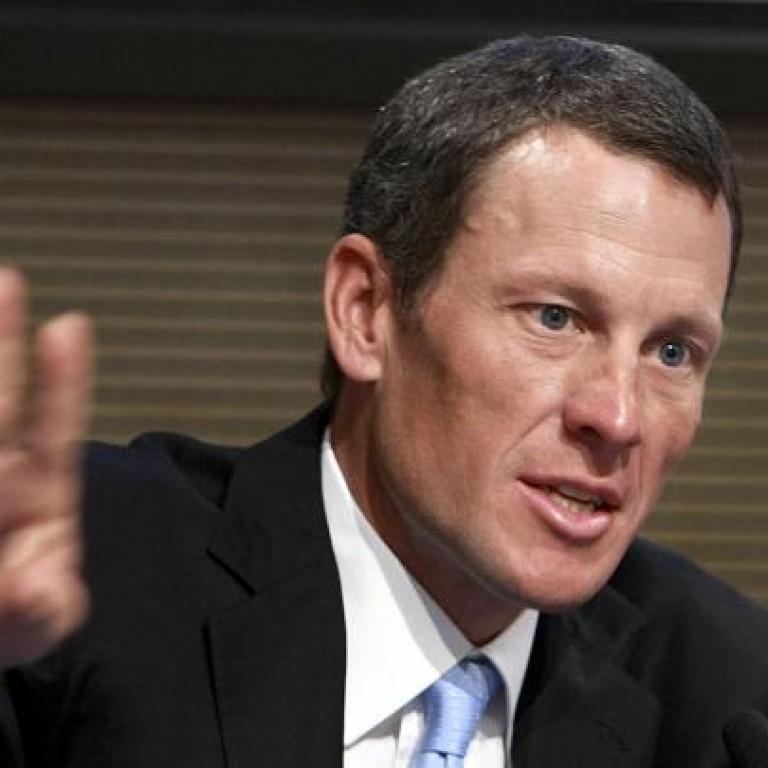
Livestrong anti-cancer charity pledges to carry on without Lance Armstrong
Anti-cancer charity says its continued existence is based on the needs of patients and survivors, and transcends its disgraced cyclist founder
The anti-cancer charity founded by disgraced American cyclist Lance Armstrong will survive despite the doping scandal that forced Armstrong out of the organisation, says the boss of Livestrong Foundation.
"Will the Livestrong Foundation survive? Yes. Absolutely yes," Andy Miller said in what was billed as a "major" speech at the foundation's annual meeting in Chicago on Thursday. "Our work is too meaningful, our role too unique, the need too great, to stand for any other answer."
Will the Livestrong Foundation survive? Yes. Absolutely yes. Our work is too meanginful, our role too unique
Armstrong was stripped of seven Tour de France titles last year after a United States Anti-Doping Agency (Usada) report put him at the centre of what it called the biggest doping conspiracy in cycling history.
In a January television interview with talk show host Oprah Winfrey, Armstrong ended years of denials and confessed he used performance-enhancing substances to help him win the Tour de France from 1999 through 2005.
Armstrong founded Livestrong in 1997 after he underwent chemotherapy to overcome testicular cancer that had spread to his brain and other parts of his body.
The Usada report forced him to quit last year as Livestrong's chairman and later resign from its board of directors, the triumphs that had inspired others to fight cancer having been revealed as a doping-aided hoax.
"Our success has never been based on one person," Miller said. "It's based on the patients and survivors we serve every day who approach a cancer diagnosis with hope, courage and perseverance. Armstrong visited the Livestrong staff at their headquarters in Austin, Texas, to formally apologise for letting them down.
"It was the best thing for the organisation but it hurt like hell," Armstrong told Winfrey. "That was the lowest."
Livestrong, which has raised more than US$500 million and served 2.5 million people affected by cancer, said it hoped to expand its services to directly help more than 15,500 cancer survivors a year.
Hundreds of volunteers and staff members gathered in the conference ballroom welcomed Miller's determination to move the charity forward. "I've been waiting to hear this," said Ashleigh Moore, 54, an Australian volunteer who has survived three bouts of cancer and helps to run an advocacy group in Adelaide which partners with Livestrong.
"It really invigorated the passion in a lot of people. Livestrong is going forward with renewed energy."
Angie and Jerry Kelly said they had fielded a lot of questions from friends and neighbours in Alabama since the doping scandal enveloped Armstrong and the foundation.
"It's doing too much good and helping too many people and there's too much of a need around the world so it has to go forward," said Jerry Kelly, 45, who has survived both testicular cancer and melanoma and volunteered with the group for the past 13 years.
While Armstrong has raised the foundation's profile over the years, Angie Kelly said she had "no doubt" that Livestrong would survive without Armstrong. "It's about more than just one man," she said. "There are so many other stories we share."
